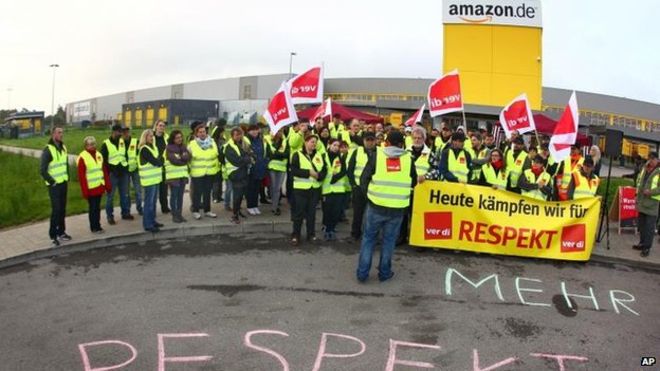Amazon is Europe’s largest internet retailer, with a turnover twice that of its twenty largest competitors. In 2017 its chief executive earned $2.16 million per hour, while Amazon workers receive the statutory minimum wage, which in the EU varies between €1.42 and €11.27 per hour.
In 2018 the company generated a global turnover of about €210 billion—an increase of more than 30 per cent on the previous year. Employing more than 600,000 workers around the globe, it now has a market capitalisation of more than €730 billion, with its operating profit amounting to approximately €11 billion.
Ireland is not the only country in the European Union to do sweetheart deals with transnational corporations, such as Apple, Amazon, Facebook, Google, and Microsoft, among many others. Thanks to a deal with the government of Luxembourg (when Jean-Claude Juncker was prime minister), Amazon did not pay any tax on 75 per cent of its turnover between 2003 and 2014.
These companies are notorious for the super-exploitation of workers and the elimination of competitors through unfair (and often illegal) business practices, as well as for the environmental impact of their excessive packaging and the destruction of goods that are returned in perfect condition.
Amazon generates its massive turnover by being (a) one of the biggest on-line retailers, (b) the operator of by far the largest on-line market for third-party suppliers, (c) one of the largest providers of on-line services, and (d) the distributor of the products ordered.
Because of its monopoly position in some sectors, many independent traders depend on Amazon for reaching their customers. Not satisfied with this monopoly position, and the vast profits that it is able to make, its strategy now is to drive more independent retailers and manufacturers out of business through its sheer market power, for example through copying products and undercutting prices.
With this uneven power relationship and its monopoly control, Amazon can impose huge burdens on those traders that wish to use its services, demanding a large percentage, thereby forcing tighter margins. The result is a constant downward pressure on workers’ wages and conditions, competing with workers around the globe who never see or know each other.
According to Union Network International, an international umbrella organisation for service unions, Amazon’s company strategy is based on brutal piecework, carried out under permanent control, using advanced monitoring technology.
Amazon workers can cover distances of 16 to 20 km in an hour and lift 50 tonnes of packages per day, and may be expected to handle three hundred packages per hour. Taking breaks is often not possible, even to go to the toilet, forcing some to urinate instead in a bottle at their work station. Because of work-place accidents, ambulances had to be called six hundred times during a period of three years to Amazon’s warehouses in Britain, where 87 per cent of its workers reported suffering chronic joint pain.
Amazon exploits every possible legal loophole: in deciding what break times workers are entitled to, in defeating strikes, and in the way temporary workers are hired. Safeguards are reduced to a minimum. Through “sector shopping” (classification in more favourable sectors in different countries), the company chooses the lowest possible costs. To this end it claims to be a logistics (i.e. delivery) company in Germany while in France it operates as a “small trader.”
Throughout Europe there are growing efforts to organise Amazon workers, resulting in numerous strikes. In May 2018 in Germany, where the company has eleven warehouses, employing a permanent staff of 13,000, the United Services Union organised a strike in several branches, as the company was not paying a living wage.
In Italy a collective agreement with Amazon on wages, shift work and working hours was introduced for the first time in 2018, and this was taken as a model.
In November 2018 Amazon workers in Britain, Spain, France, Italy and Germany went on strike against their working conditions. Union Network International has successfully established the UNI Global Amazon Alliance as a network straddling fourteen countries, and struggle is certain to continue.






